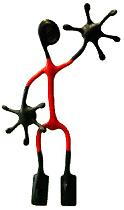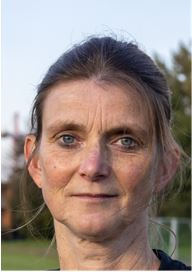
Psychomotor learning & development aims to foster diagnostic tools and interventions for promotion of specific aspects found within childhood development. Studying and analyzing changes and, further on, providing implementations via advanced education or lectures is the basis for a good transfer of knowledge into real life situations. Surpassing the boundaries of general developmental studies, this system incorporates influences at a psychomotor level on social interactions into the research field which allows for a holistic approach towards childhood development.
Basic developmental theories such as Paige’s Cognitive Development Theory and Newell’s Theory of Constraints represent underlying constructs. The combination of motoscopic and motometric techniques, which means a combined analysis based on sport motoric tests and quantitative measures, is used to assess children from prenatal age onwards. For the implementation, the target group does not solely include children but people who work with children on a pedagogical basis in elementary and primary school. Another topic which should be noted is supplementary research including sport motoric testing within schools and individual promotion within the pedagogical area relevant to individual development.
Techniques applied range from kinematic, kinetic, and qualitative motion tracking to tests conceiving developmental steps during childhood.




